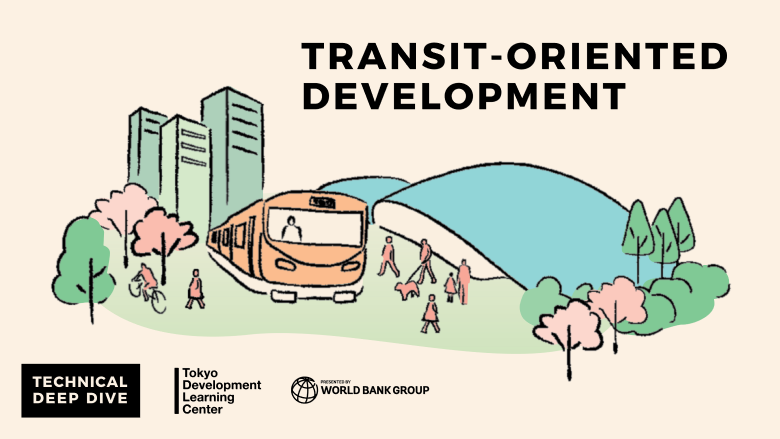
The World Bank Tokyo Development Learning Center (TDLC) in collaboration with the Transit-oriented Development Community of Practice is organizing a five-day Technical Deep Dive (TDD) on Transit-oriented Development (ToD) from January 29 to February 2, 2024, in Tokyo and Osaka. Japan is renowned worldwide for its ToD and land-based development around transit nodes. Delegations from 10 countries (comprising around 40 World Bank client representatives and World Bank staff) representing urban development and ToD projects will join the TDD.
With growing urbanization, coupled with demographic changes, such as aging and declining population, urban land and spaces are becoming more valuable. This has created an urgent need to optimize the spaces and manage them efficiently, sustainably, and competitively. One of the urban development solutions is TOD, which aims to concentrate businesses, services, residential areas, and other land uses around the public transport nodes, typically through higher densities and mixed-use developments. Anchored on the concept of creating neighborhoods that are compact, walkable, energy-efficient with mixed-use spaces and communities, TOD promotes urban regeneration, local economic development, social inclusion, and livability. TOD is also a solution to the serious and growing problems of climate change and global energy security as it greatly reduces the dependence on driving and promotes more energy efficient transport systems, including walking, cycling, and public transport system.
While TOD is one of the popular transport development models, innovative financing and development mechanisms, private sector involvements and methods and procedures to tailor it to the overall urban planning framework can be challenging. Many cities from developing countries are interested in learning its planning, policy, institutional framework, implementation, and financial aspects are still increasing.
The objective of the TDD is to provide participants with an opportunity to develop a deeper understanding of TOD as part of the overall urban planning and policy framework. With the help of Japanese case studies, it aims to showcase TOD driven urban regeneration, innovative financing and development mechanisms, and application of green TOD principles hinged on the concept of value for money, sustainability, resilience, social inclusion, and sound governance. Special focus will be given to the economic, social, and environmental impacts of TOD.